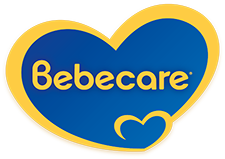Children’s social-emotional development is responsive to the secure relationships they have with their parents, caregivers and other important adults in their lives from the moment they are born. Although their social and emotional skills may develop in varying ways and at different rates, they are still very dependent on the quality of interactions they have with the surrounding environment. Thus, the concept of positive parenting is essential for every caregiver to learn about in order to promote a healthy development for their child.
Positive parenting is a nurturing, empowering, and non-violent relationship between parents and children that provides guidance and recognition for the unique needs of a child consistently and unconditionally. Parents who are positively parenting their children understand that their children are not subjects to be controlled, but rather their environments and the influences around them are what can be controlled. Influences such as the parents own behavior, the interactions with the child, and the strategies used in parenting are what parents can control to promote a more positive and healthy development.
Children start developing from the moment they are born!
Research has proven valuable positive outcomes on the social and emotional development of children. Children who have been raised in a positive environment grow up to be more confident and perform well academically. They also grow up with stronger emotional resilience, better social skills, and healthy intellectual abilities. In addition, positive parenting can be one of the reasons of protecting the child from developing behavioral problems that require professional intervention. These outcomes are not temporary and will not fade, especially if the parents adopt positive parenting during the early years of their children’s lives as they are the most vital ones to set strong foundations in their personalities and development.
Children are not always behaving perfectly, and that is why it is necessary to use some positive parenting and positive discipline strategies to teach them appropriate manners as well as correct their misbehavior. First of all, you must understand each of your children’s uniqueness; what agitates them, what angers them, and what makes them listen. This will help you in finding the appropriate way to parent them positively. Using positive words with children is important. So, instead of telling them what you do not want them to do, try telling them what appropriate behavior you do expect from them. Also, monitor your tone and try to keep it positive, for it will change your child’s manner and reaction to your requests. Moreover, focus on giving praise and attention to your children’s good behavior to avoid them resorting to misbehavior to get your attention. A general rule would be to give your children five times more praise than criticism. In addition, instill confidence and independence in your children every chance you get. Therefore, provide them with the appropriate space and tools to do things on their own, but in a safe environment that provides least amount of chances for misbehavior. For example, keep their toys and clothes at an appropriate height for them to use without your help, then praise them for successfully putting away toys or independently dressing themselves.

Families are the most influential figures in a child’s life from the very start.
Positive parenting and positive discipline strategies are endless, and the appropriateness of each strategy depends on each child’s unique needs and preferences. The abovementioned strategies are only some suggestions of what could be called “positive parenting”. The most important thing is to learn about positive parenting and your child’s personality. This effort will leave remarkable influence on your child’s emotional and social development which will help them grow up to be more positive and successful members of the society.
Show Resources- Batra, P. (2013). Positive parenting: Meaning and methods. Indian Journal of Positive Psychology, 4(4), 528-533. Retrieved from https://search.proquest.com/docview/ 1614019140?accountid=145382
- Guthrie, D., Amos, S.P. (n.d.). Positive Parenting. The University of Kansas School of Medicine. Retrieved from http://wichita.kumc.edu/Documents/wichita/pediatrics/ Positive%20Parenting%20Handbook.pdf
- Schofield, T. J., Conger, R. D., Donnellan, M. B., Jochem, R., Widaman, K. E., & Conger, K. J. (2012). Parent personality and positive parenting as predictors of positive adolescent personality development over time. Merrill – Palmer Quarterly, 58(2), 255-283. Retrieved from https://search.proquest.com/docview/1009905635?accountid=145382
- Top Tips for Parents: Your Guide to Positive Parenting. (n.d.). Women Work. Retrieved from https://www.womenwork.org/wp-content/uploads/2016/






